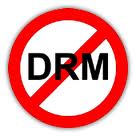 From Publishers Weekly:
From Publishers Weekly:
Launched in 2006, Springer’s e-book program offers 40,000 titles in the PDF format in the science, technical, and medical category (including some textbooks). The company consulted with its institutional customers when it designed the program back in 2005. “We showed them our original plans and they said, ‘Start over,’ with no DRM,” said Scotti (although national consumer retailers require DRM on Springer e-books). The result, he said, has been “a better user experience leading to increased usage and a better ROI for the libraries.” Scotti said that Springer e-book downloads (for books and journals) in 2008 were up 33%, and downloads from 2007 to 2009 more than doubled.
and a very interesting Boingboing comment to their about the same topic:
I’m so excited to see us on BoingBoing!! We’re very proud of our eBooks, and the lack of DRM is a major factor in sales. Librarians site that part of the business model specifically when purchasing. When you lock up an electronic book, only allow one or a few viewers to read it simultaneously, limit the number of pages you can print, disable viewers from loading information to mobile devices, or forbid inter-library loan programs, how is that any different from buying the print book? It’s worse! The line between scientific journals and books is fading, and now we are having discussions about content – specifically about how to help it reach as many researchers and students as possible, which also means heavily investing in Open Access publishing, as we are with the SpringerOpen and OpenChoice programs. All of our content is also submitted to and indexed by Google, GoogleScholar, and GoogleBooks. The funding will come, but not if the industry shoots itself in the foot by crippling access to and discoverability of their eBooks.
(Disclaimer: I work for Springer, and George is my boss.) (His name is also George Scotti, not Scottie.)

































